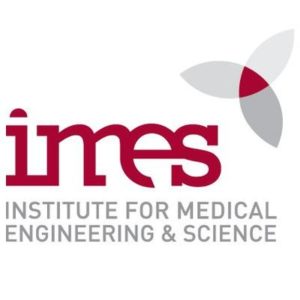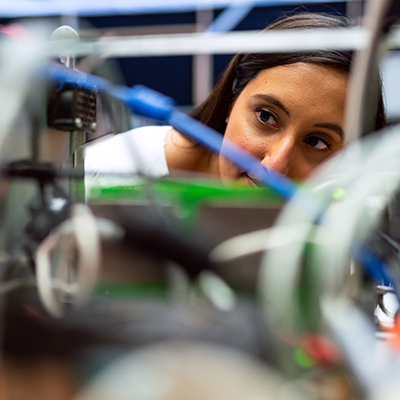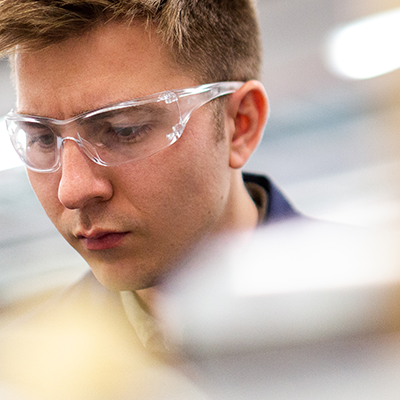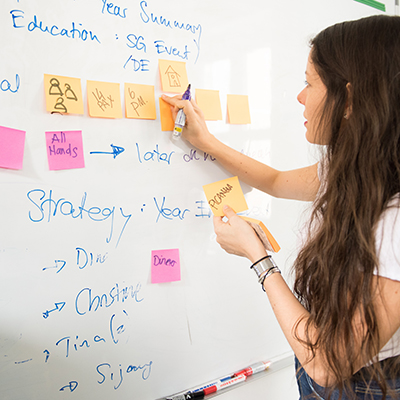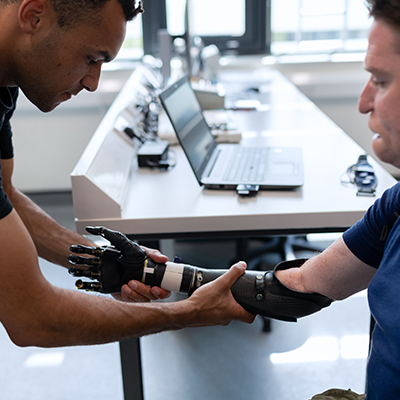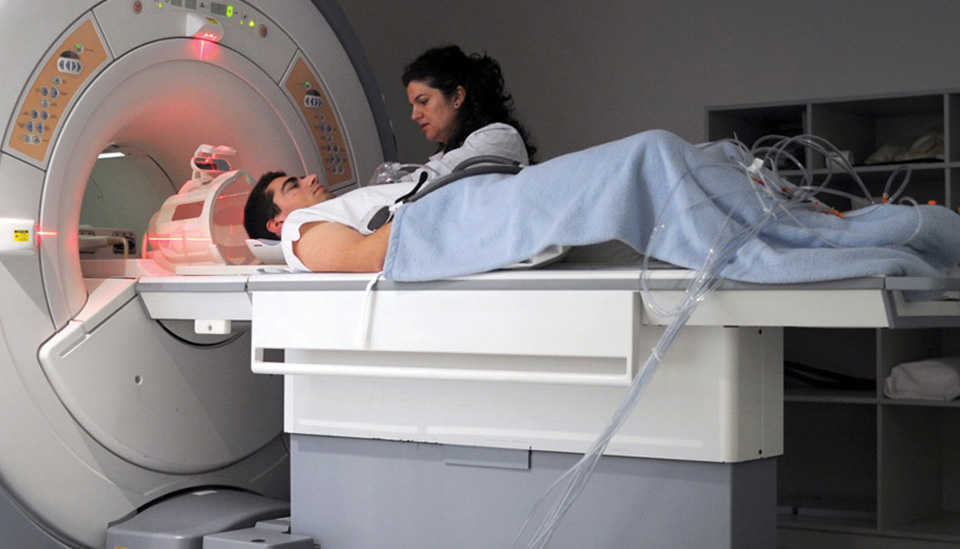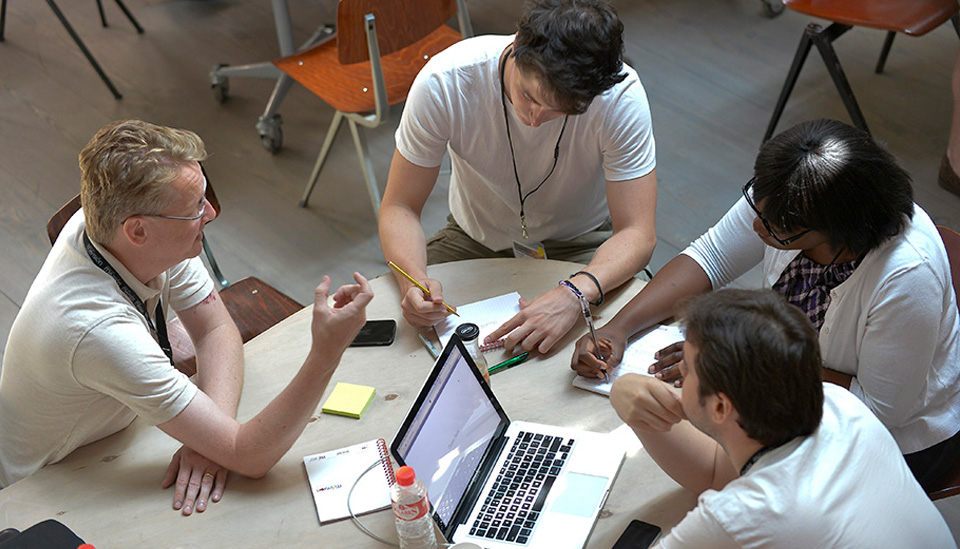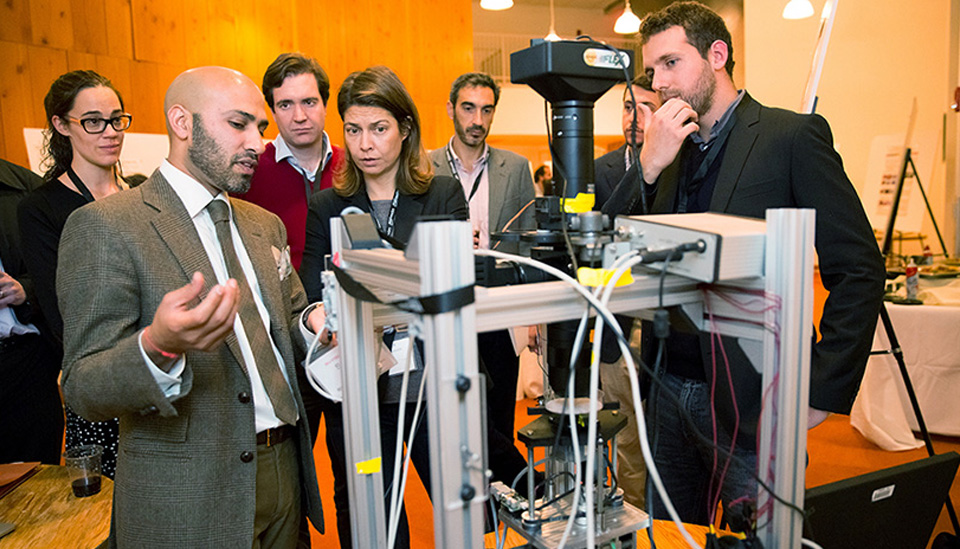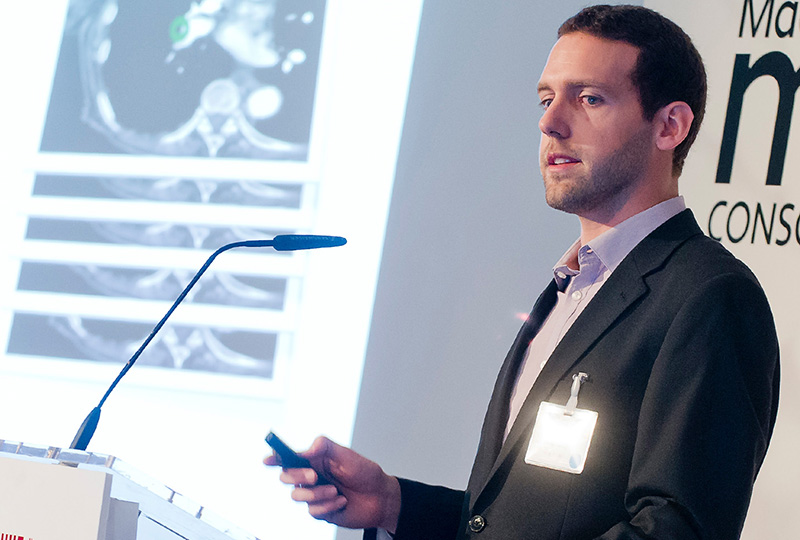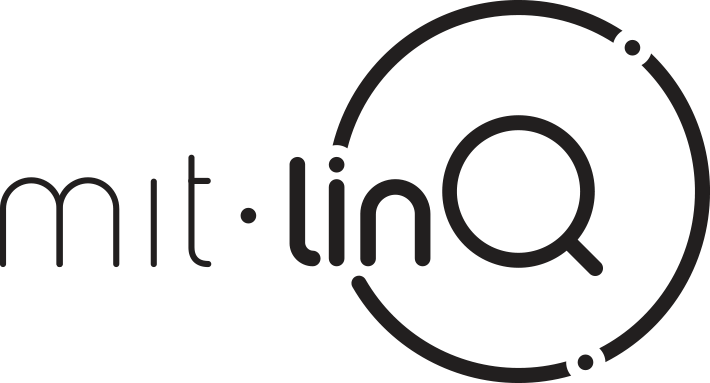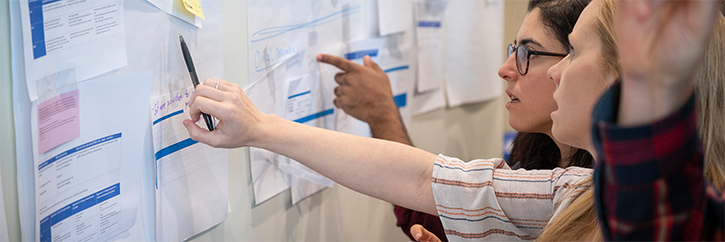



2024 Catalyst Fellowship Program
The Catalyst program fosters the development of enabling technologies to address unmet medical needs. Catalyst is appropriate for those with interest and willingness to spend time in research, innovation, and health.
We seek a multi-talented cohort, including:
Why join Catalyst
This first six months
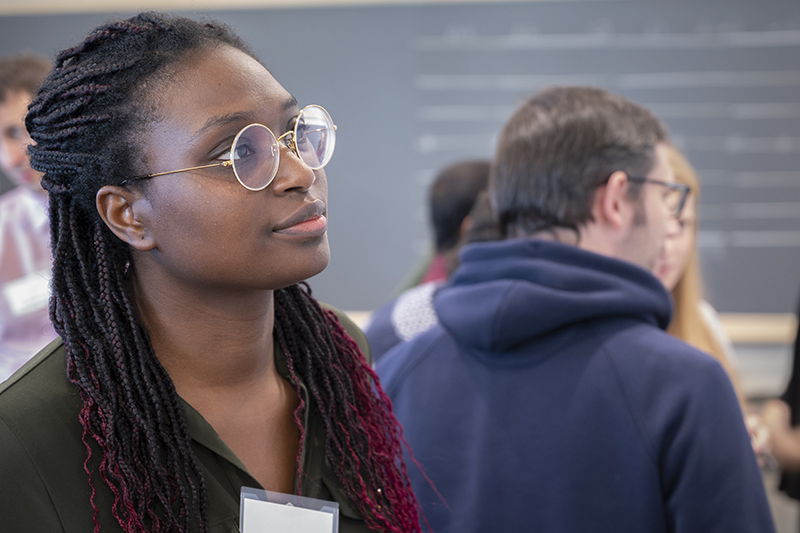

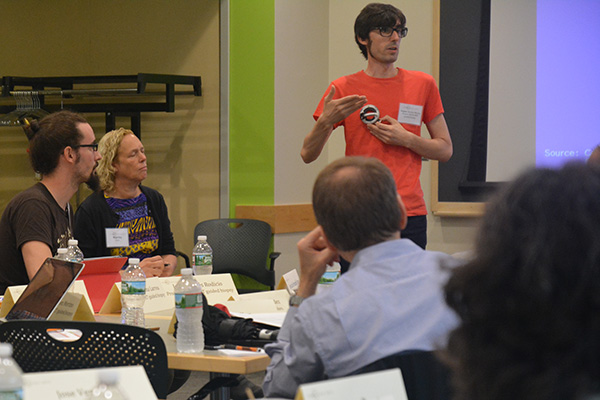

Experience highlights
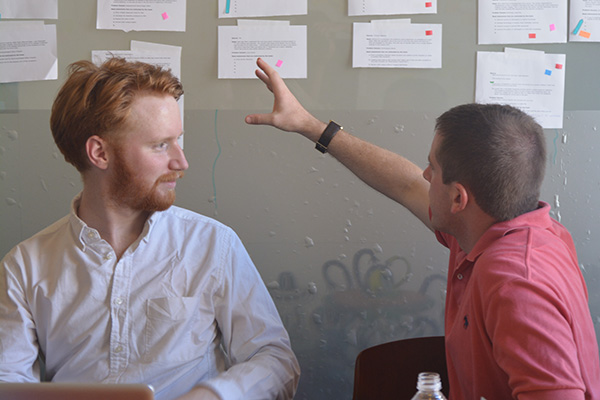

New project discovery with high potential to achieve health impact and without the constraints of a single lab or organization.
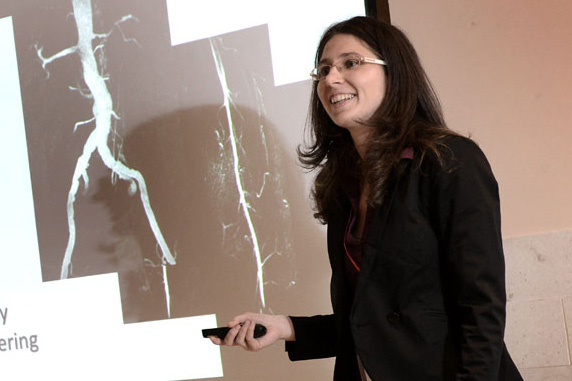

Process driven by you in a multi-disciplinary team based environment. Past teams have established new lines of research, launched start-ups, and embarked on new career trajectories.
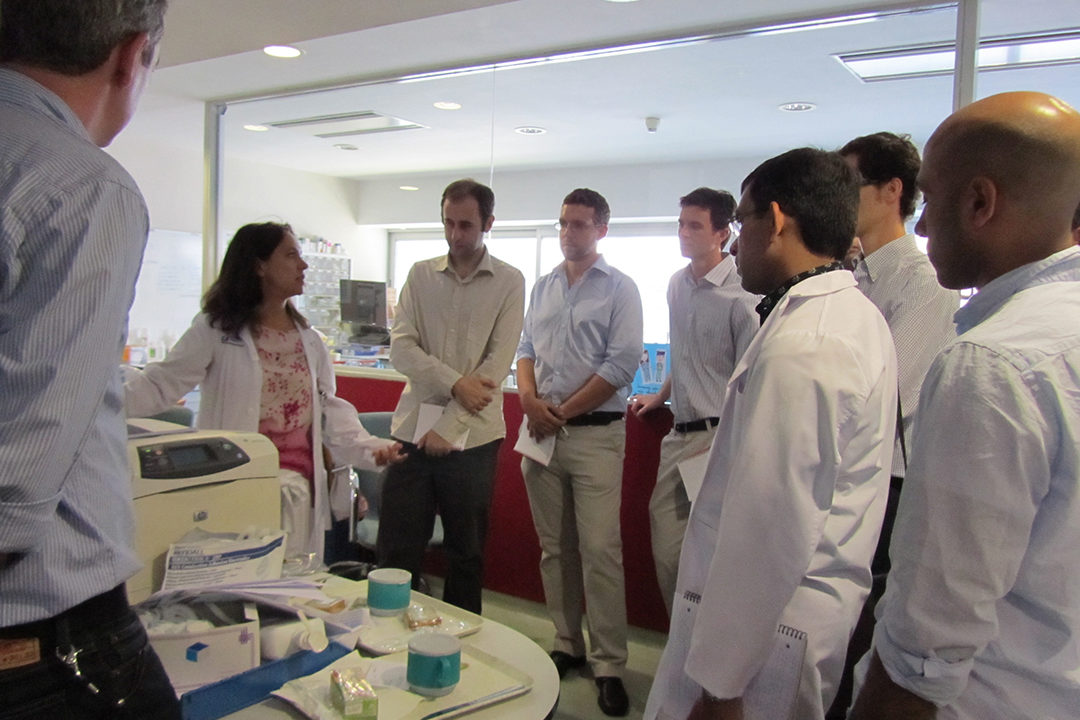

Mentored by a unique network of leading experts in their field from academic research and industry that shortens the time to realize meaningful healthcare outcomes.
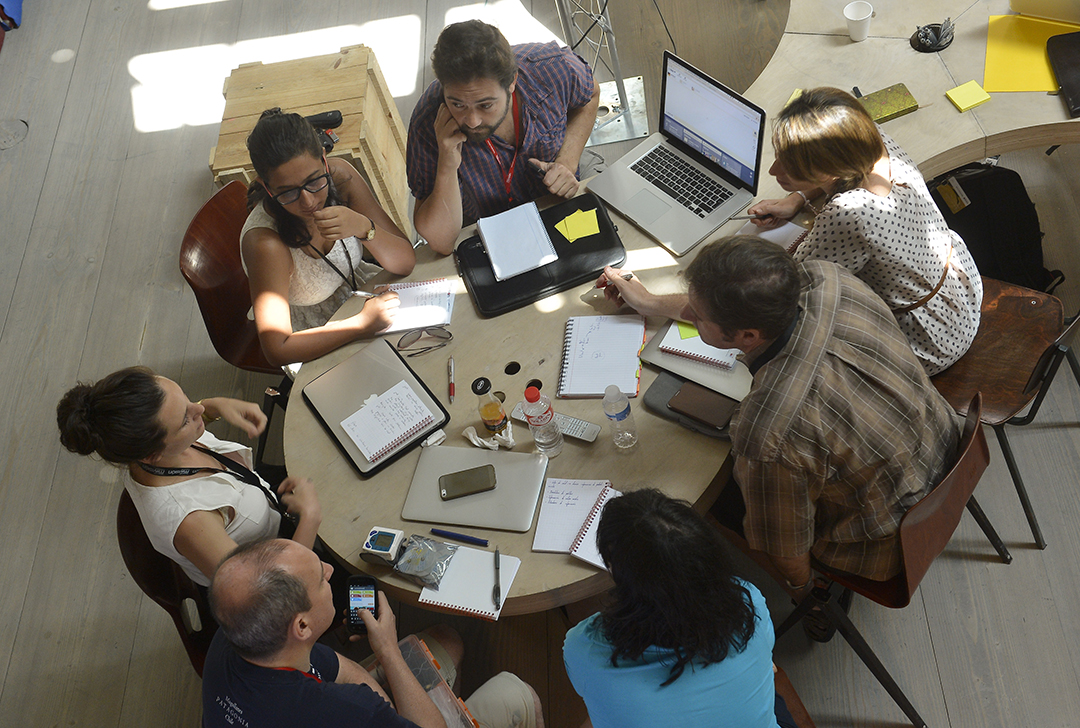

A proven MIT linQ Innovation Method that focuses on real-world medical innovation opportunities and accelerates impact.
In their own words
Catalyst Fellows describe their experience and outcomes in this prior Information Session.
Also: Fellows Ravi Rasalingam and Lola Baird share their stories from the Catalyst Fellowship
Dr Michael Charness, Chief of Staff for the Boston VA Healthcare System, explains the importance of innovation to improving patient care, and how innovation achieved in real-world practice.
The process
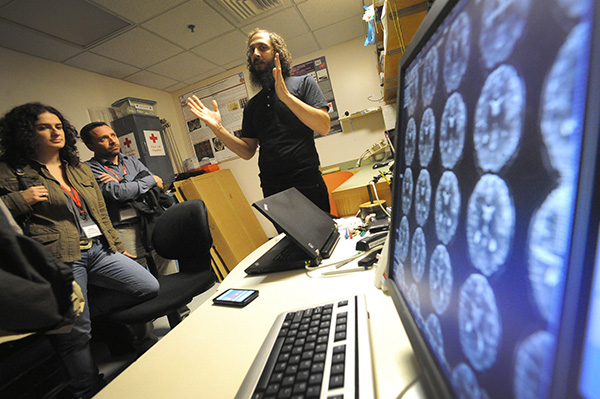

Proof of Need
Proof of Need: Identify and evaluate relevant unmet medical needs by visiting laboratories, talking with clinicians, and exploring the literature.
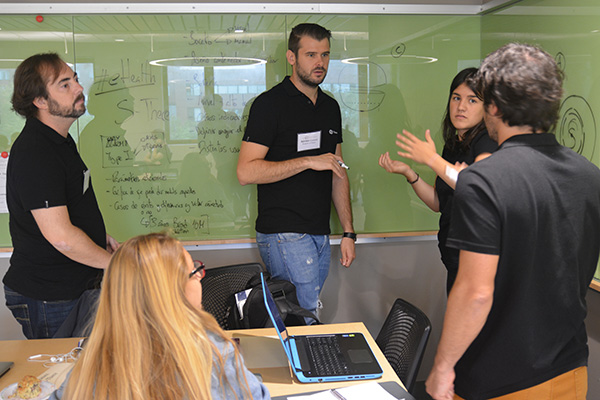

Proof of Opportunity
Proof of Opportunity: Identify and evaluate a set of possible solutions. Meet with key stakeholders to assess their potential of solving the unmet need.
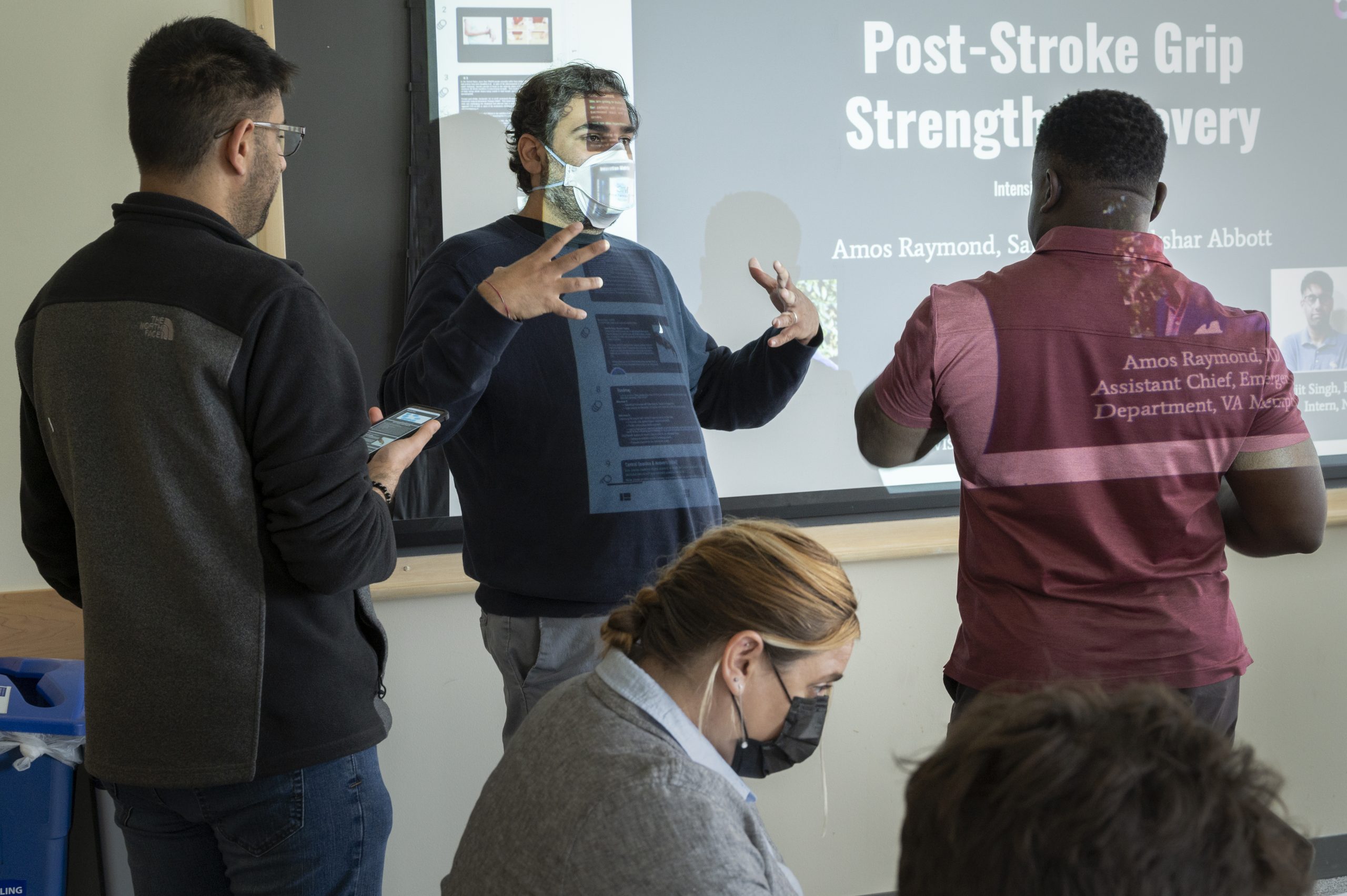

Project Proposal
Project Proposal: Develop a research project plan with milestones over a 12-18 month time frame.


Outcome
Outcome: Portfolio of validated research projects for ongoing mentorship, with real opportunity to transition to the project execution phase, project execution—exploration of funding and commercialization opportunities. Learn more about the Catalyst process
Who should join
While we expect candidates to have some identified area of expertise, we do not specify that area, nor do we expect candidates to be deeply familiar with the research/innovation priorities. Through our process, Fellows working in teams learn from one another, gain from hearing the perspective of others (even those who are not expert), and sometimes Fellows have to unlearn (or set aside) what they know about a problem to open the door to observations and, ultimately, innovation.
Faculty serving as mentors will help guide you through the Catalyst process, which involves cycles of convergent and divergent thinking, trial and error, iteration, progress, reassessment, creativity, critical thinking, and more iteration. Although seldom a linear path, it is always an exciting one for those who are ready for a journey from insight to impact. You and your teammates will ultimately decide which projects to move forward. Applicants don’t need to know a lot about entrepreneurship or innovation.
Common attributes of successful fellows
- Ability to apply logic and critically analyze and synthesize a broad range of source materials
- Ability to differentiate between validated facts and not-yet-validated assumptions, and to ideate a process to validate assumptions
- Willingness to work outside their field of expertise
- Ability to communicate ideas and collaborate with others with different expertise and experience
- Ability to design, create and build new technologies to solve critical problems
- Willingness to “own” your career and your project (rather than depending on direct supervision)
- Ability to receive and synthesize constructive criticism
- A team player willing to fulfill different roles in research projects
- Experience in developing and implementing research proposals
- Be willing to work in a process that is chaotic, creative and free of pre-conceived ideas or pathways
Catalyst community values
The Catalyst Program is aligned with MIT's Values Statement in our commitment to making our community a humane and welcoming place where people from a diverse range of backgrounds can grow and thrive. Because learning is nourished by a diversity of views, we cherish free expression, debate, and dialogue in pursuit of truth – and we commit to using these tools with respect for each other and our community.
Catalyst aims to address equity and intersectionality in biomedical research and innovation in healthcare. Race, ethnicity, age, and sex can impact how different people respond to the same intervention. Diversity of thought and perspectives through the lens of a participant’s background contributes to an enhanced learning experience, improved research and development, and overall better medical interventions.
Our community challenges ourselves to face difficult facts, speak plainly about failings in our systems, and work to overcome them. Valuing potential over pedigree, we know that talent and good ideas can come from anywhere – and we value one another’s contributions in every role.
Other Catalyst roles
If you’re interested in Catalyst but a Fellow role is not right for you, there are other ways to participate. Indeed, Catalyst depends on input and participation from a wide range of individuals, and in various capacities to reach our goals. Roles include (but aren’t limited to): serving as a subject matter expert, reviewing interim work by Fellows, professional development advising, teaching workshops, making connections, allowing shadowing experiences, access to labs or data, longitudinal mentoring, and curriculum development. If you're interested in participating in Catalyst in one of these roles, please complete the short survey linked below.
Program details
Participation requirements
Initial commitment: 10-15 hours per week over 6 months (January to mid-July). Weekly meetings are held online, with periodic multi-day in-person “intensifications”
Full opportunity: Multi-year, team based research project, led by a team of Fellows. (Contingent on project proposal approval in July 2024)
Catalyst is a program located in the United States. We anticipate that Fellows will be physically present in the US from January to July 2024. Note that we do not provide sponsorship for visas.
January 2024–early July 2024:
- January 3, 2024: First session
- Availability to meet during program schedule
- Weekly sessions: Wednesdays 10:00am – 1:00pm ET
- Weekly discussion groups: Mondays 10:00am – 11:00am ET
- Three 3-day working sessions at MIT: January 16–18, February 13–15, and May 7–9.
- July 3, 2024: Final session
- Compatibility with current job, training, or activity
- As appropriate, approval of your supervisor
- See FAQs for more details
After July 2024:
While the initial commitment is for 6 months, given that the objective is for you and other Fellows to nucleate a new research/innovation project, candidates should consider the feasibility of working beyond the initial 6 months. Practically speaking, the time required will continue to be at least 10-15 hours per week, but many Fellows have found ways to devote more time than that to accelerate their progress. Again, no a priori commitment is expected, but if you are certain that it would be impossible to go beyond the 6 month period, consider holding off your application until there is some possibility of continuing. Feel free to reach out to us to discuss your situation.
Cost
Thanks to the generosity of our donors and partners, this program does not require individuals to pay tuition.
Info session recording
FAQs
Want to learn more? We have detailed answers to frequently asked questions.
Want to know more about the VA–MIT partnership in Catalyst and what it means for VA providers?
Still more questions? Email us at catalyst-program@mit.edu
Apply to join
Applications for the 2024 edition are closed
The Catalyst application is a multi-stage process designed to help prospective participants get to know the program, and vice versa.
1. Expression of Interest
The Expression of Interest form is closed, but we encourage you to submit your application, which will be considered on a rolling basis.
2. Full application
We will invite you to complete our full application by August 3.
- Details about the application and the timeline are below.
- You will have the opportunity to update your CV or resume and provide letters of recommendation.
- There are five long form questions designed to help our admissions committee get to know you.
- Applications received by August 3, 2023 (Cycle 1) are guaranteed a full review and are prioritized by the admissions committee.
- For Cycle 2, complete, submitted applications will be considered on a rolling basis. As we have a limited number of slots available for the 2024 cohort, candidates are encouraged to complete their application in as soon as possible.
3. Interview
- Invitations to interview are extended to individuals who have demonstrated the greatest potential to meaningfully contribute to the cohort.
- Interviewees will be required to submit letters of recommendation and contact information for references by August 31 to complete their applicant file.
- A full day of virtual activities and interviews is planned for September 8. Please reserve 10am – 4pm ET to attend.
Timeline:
- By August 3: Complete your full application.
- September 8: Interviews will be held virtually, 10am-4pm ET. Please save the date.
About the application
Documents and information you will need to submit in the Application Form include:
- Curriculum Vitae (required)
- Reference letters (strongly recommended; required prior to interview)
- Reference contacts (required; we will not reach out prior to interviews)
- Application questions (previewed below)
Application questions
The objective of these questions is to know more about you and your experiences. Remember that Catalyst will guide and train you to identify and validate unmet needs, define solutions and design new research projects with high translational potential during the program. You are not applying with an existing project to the Catalyst program; you are applying as a talented and passionate individual with valuable skills to make an impact in healthcare.
Please list your core competencies, including domains of expertise and experience (75 word max)
Help us understand your CV in context. Tell us about one or two of your non-classroom, professional or research experiences—describe your role in understanding challenges, applying learnings, and influencing outcomes. (150 word max)
Logical reasoning skills are foundational to the Catalyst process. Please tell us about a past research or professional experience where the application of logical reasoning skills were critical.
Please tell us why you are interested in being a Fellow in the Catalyst Program (75 word max).
What else should we know about you? (Optional)
Catalyst partners




